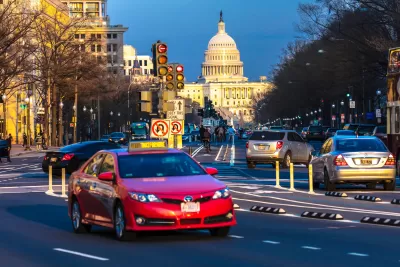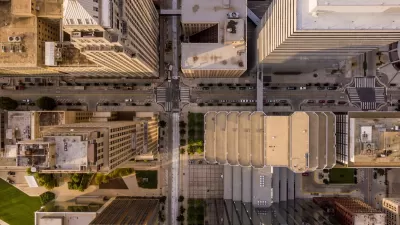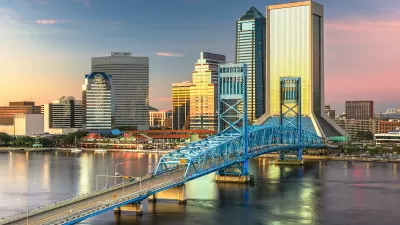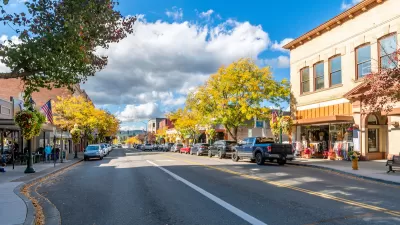A pilot program will send letters and text messages directly to drivers with histories of speeding and reckless driving warning them of the increased risk for themselves and others.

The District of Columbia hopes a new communications campaign will encourage safer driving behaviors, reports Martin Austermuhle in DCist.
“The city is starting a year-long pilot program where it will send targeted letters and text messages to almost 100,000 drivers who have received a large number of speeding and red-light tickets from the city’s network of traffic cameras, with the hope that those direct and somewhat stern missives will change their driving habits for the better.” The letter notifies recipients that their vehicle has a history of dangerous driving and includes alarming phrases like “YOUR CAR IS MORE LIKELY TO BE IN A CRASH THAN OTHERS ARE.”
The program is designed as one part of the larger Vision Zero program. According to Sam Quinney, director of the city’s in-house research arm The Lab @ D.C., “The goal here is not to be punitive. This is not an attempt to shame drivers. What we’re trying to do is make them aware of their risk.”
The District, like other U.S. cities, has made little progress through its Vision Zero initiative, which was criticized by the D.C. Auditor for a lack of oversight and funding.
FULL STORY: Can Letters And Text Messages Get Dangerous Drivers To Change Their Ways? D.C. Wants To Find Out

Study: Maui’s Plan to Convert Vacation Rentals to Long-Term Housing Could Cause Nearly $1 Billion Economic Loss
The plan would reduce visitor accommodation by 25,% resulting in 1,900 jobs lost.

North Texas Transit Leaders Tout Benefits of TOD for Growing Region
At a summit focused on transit-oriented development, policymakers discussed how North Texas’ expanded light rail system can serve as a tool for economic growth.

Why Should We Subsidize Public Transportation?
Many public transit agencies face financial stress due to rising costs, declining fare revenue, and declining subsidies. Transit advocates must provide a strong business case for increasing public transit funding.

How to Make US Trains Faster
Changes to boarding platforms and a switch to electric trains could improve U.S. passenger rail service without the added cost of high-speed rail.

Columbia’s Revitalized ‘Loop’ Is a Hub for Local Entrepreneurs
A focus on small businesses is helping a commercial corridor in Columbia, Missouri thrive.

Invasive Insect Threatens Minnesota’s Ash Forests
The Emerald Ash Borer is a rapidly spreading invasive pest threatening Minnesota’s ash trees, and homeowners are encouraged to plant diverse replacement species, avoid moving ash firewood, and monitor for signs of infestation.
Urban Design for Planners 1: Software Tools
This six-course series explores essential urban design concepts using open source software and equips planners with the tools they need to participate fully in the urban design process.
Planning for Universal Design
Learn the tools for implementing Universal Design in planning regulations.
Ascent Environmental
Borough of Carlisle
Institute for Housing and Urban Development Studies (IHS)
City of Grandview
Harvard GSD Executive Education
Toledo-Lucas County Plan Commissions
Salt Lake City
NYU Wagner Graduate School of Public Service





























